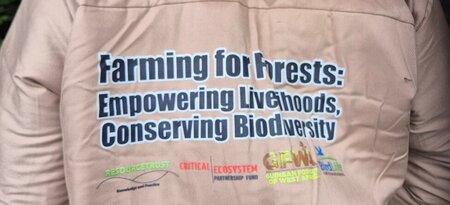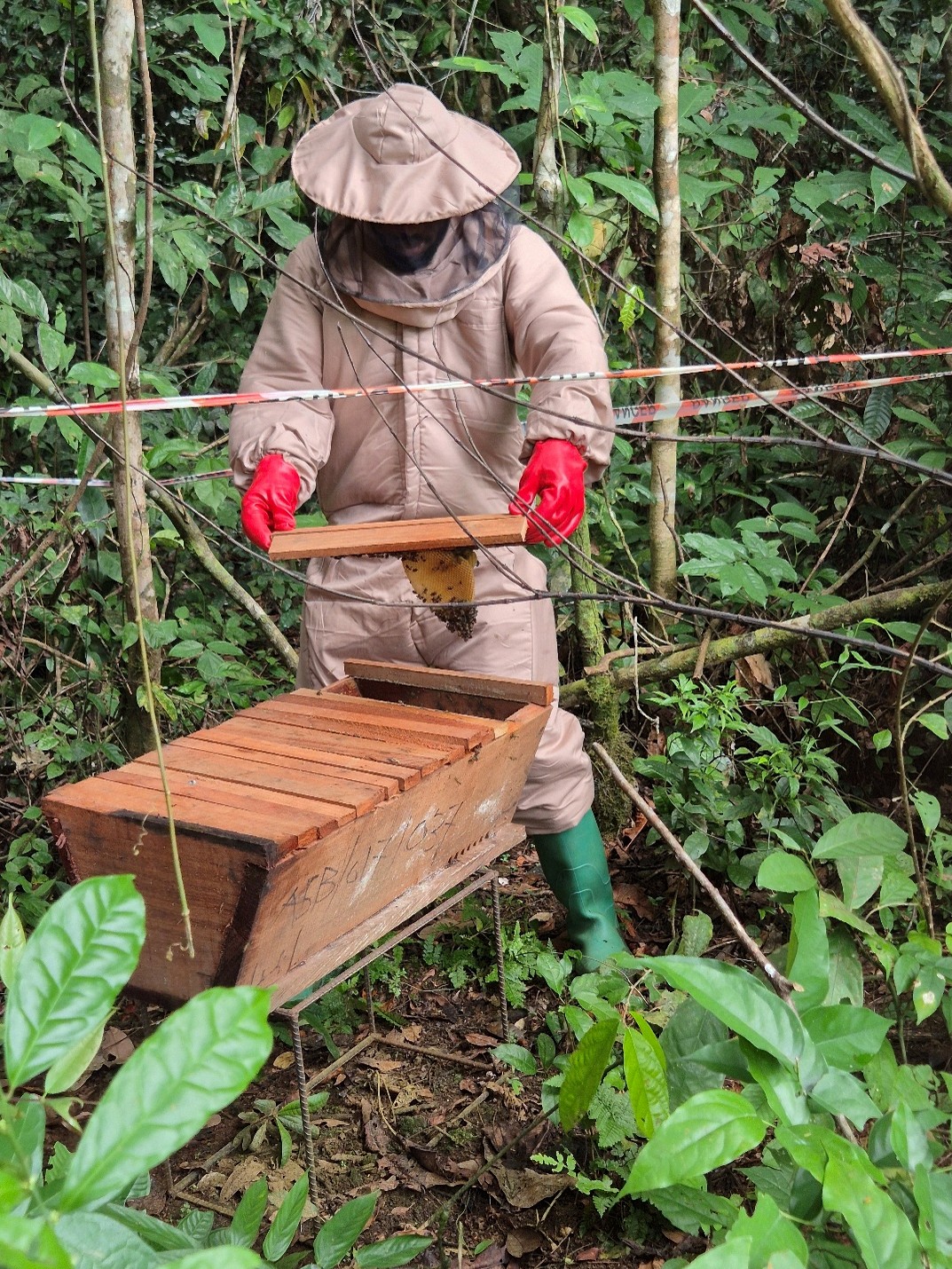Supporting rubber smallholders in West Africa
23 outubro 2025
AFi Coalition member Resourcetrust Network is advancing conservation and supporting farmer livelihoods

Resourcetrust Network is a founding member of the AFi Coalition, and has been supporting smallholder rubber farmers in West Africa since 2018. The organisation is finding ways to increase farmer income while protecting natural environments.
In Western Ghana, Resourcetrust Network has been working with rubber smallholders near country’s Cape Three Points Forest Reserve. The 5,200 hectare protected area is Ghana’s last remaining coastal rainforest, and one of few such forests in West Africa. This globally-significant biodiversity hotspot is home to endangered monkeys, rare birds, and many other species.
The reserve is under threat from charcoal production, illegal logging and mining, and wildlife poaching. Additionally, a half-kilometre buffer zone around the forest is being converted to tree plantations for the harvesting of natural rubber. For most farmers in the area, rubber is their primary crop. Some also cultivate oil palm, cassava, plantain, and other food crops.
Rubber farming is an important source of income for the area’s smallholders. This income is used to support daily living expenses like food and clothing, pay for children’s education, finance housing construction and improvements, and cover healthcare and other essential needs.
Engaging smallholders to support livelihoods and conservation
With funding from the Critical Ecosystem Partnership Fund, Resourcetrust Network is collaborating with smallholder rubber farmers near the Cape Three Points Forest Reserve on activities that generate additional income and support biodiversity conservation.
As part of the project, Resourcetrust has conducted training sessions for 190 smallholders from eight communities around the reserve. The trainings covered topics including application of the Accountability Framework to rubber farming activities. Using the Framework, smallholders and others in the rubber supply chain can respect human rights and protect forests.
One way smallholders are preventing buffer zones from being converted to rubber plantations is by installing beehives for the harvesting of honey. Beekeeping does not harm the natural environment, and provides an additional income source for farmers. The project identifies farmers with forest buffer zones between their farms and the reserve to train as beekeepers. It gives them the beekeeping equipment they need, and assists with installation, monitoring, and management of their hives. Additionally, the project supports the new beekeepers with marketing their honey for sale.

Transforming natural rubber supply chains
Smallholders in Western Ghana also receive technical assistance from Ghana Rubber Estates Limited (GREL), the company that purchases and processes most of the natural rubber produced in the region. GREL used the Accountability Framework to develop its no-deforestation policy, and looked to its guidance for good practices on engaging smallholders. The company buys 70,000 metric tons of rubber from smallholders each year, and helps farmers in its supply chain address deforestation.
The rubber that GREL processes goes into consumer products that are sold around the world, such as car tires. Many tire manufacturers have committed to deforestation-free rubber sourcing as members of the Global Platform on Sustainable Natural Rubber (GPSRN). The AFi worked with GPSRN to align the initiative’s policies with the Accountability Framework.
The Accountability Framework is applicable to all agricultural and forestry commodities, and it can be used by stakeholders at any stage of the supply chain, including farming communities, processors and traders, manufacturers, and retailers. To get started with the Accountability Framework, AFi’s page for companies. To learn more about the AFi’s work with the rubber sector, read the case study on GPSNR. To partner with Resourcetrust Network in West Africa, get in touch.
